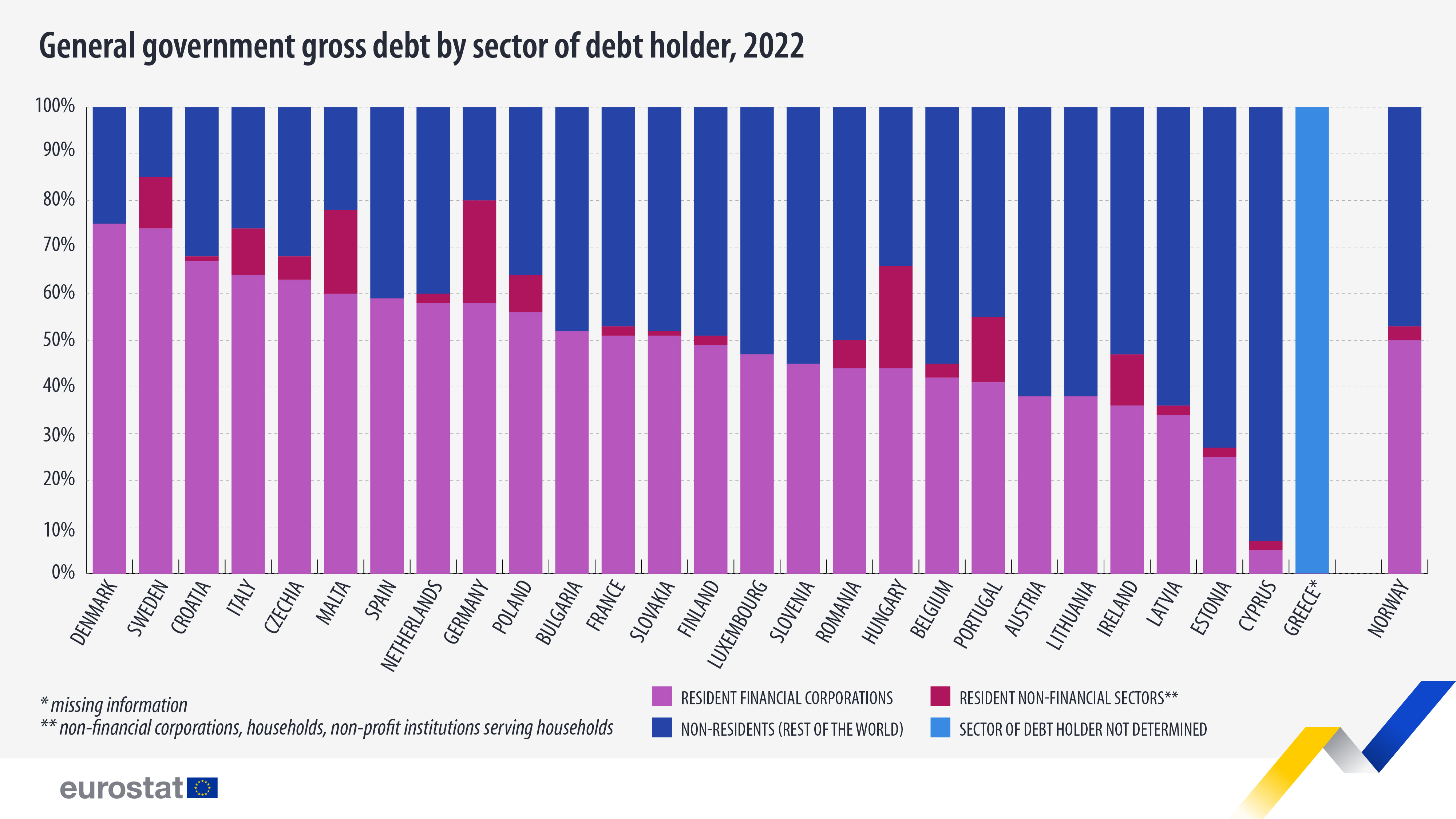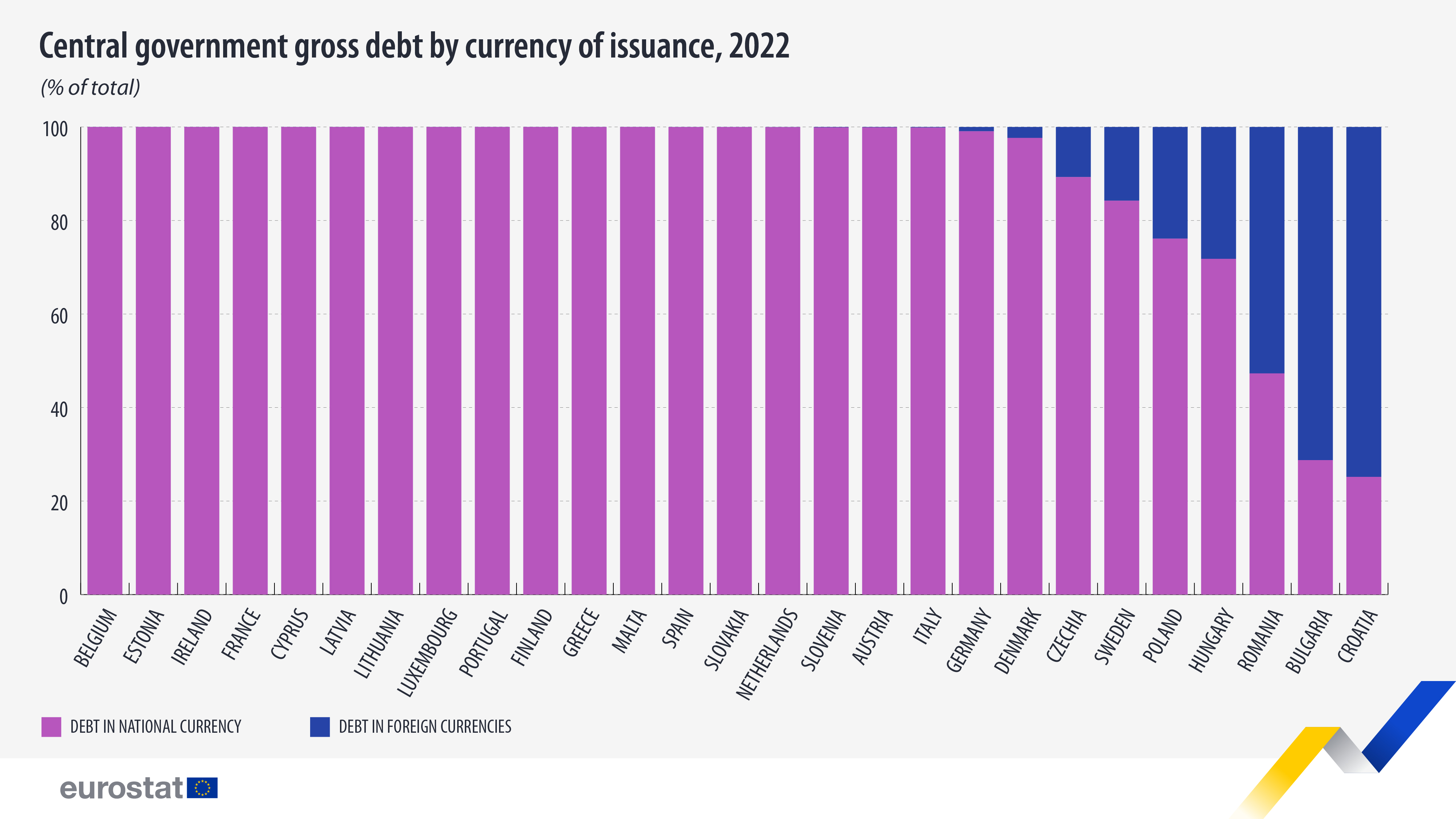Structure of general government gross debt - end 2022

Across the EU, there are significant differences in terms of the sector that holds general government gross debt. Among the EU countries for which data are available, the share of general government debt held by the (resident) financial corporations sector at the end of 2022 was highest in Denmark (75%), followed by Sweden (74%), Croatia (67%), Italy (64%), Czechia (63%) and Malta (60%).
In contrast, the largest proportion of debt held by non-residents (rest of the world sector) was recorded in Cyprus (93%), ahead of Estonia (74%), Latvia (64%), Austria and Lithuania (both 61%).
Source dataset: gov_10dd_ggd
Generally, across the EU, less than 10% of debt was held by the resident non-financial sectors (non-financial corporations, households and non-profit institutions serving households), with the noticeable exceptions of Hungary and Germany (both 22%), Malta (18%), Portugal (14%), Ireland and Sweden (both 11%).
This information comes from data on general government debt in the EU published by Eurostat today. The article presents a few findings from the more detailed Statistics Explained article.
Euro area countries’ central government debt mostly denominated in domestic currency
For the vast majority of the current euro area members, all or almost all (>99%) of their central government gross debt at face value was denominated in national currency.
Source dataset: gov_10dd_dcur
In the case of 3 EU countries, more than 50% of their central government gross debt was denominated in foreign currency at the end of 2022: Croatia (75%), Bulgaria (71%), and Romania (53%). The major share of their foreign currency debt at the end of 2022 was denominated in euro. Bulgaria and Romania are not part of the euro area and Croatia acceded to the euro area on 1 January 2023.
For more information
- Statistics Explained article on the structure of government debt
- Thematic section on dedicated to government finance statistics
- Database on government finance
- Metadata on the structure of government debt
Methodological notes
- Denominated in national currency: issued in national currency as well as issued in foreign currency and hedged (using financial derivatives) to national currency.
- Bulgaria has a currency board arrangement vis à vis the euro.
- Greece: data on general government gross debt by sector of debt holder not available.
If you have any queries, please visit our contact us page.


